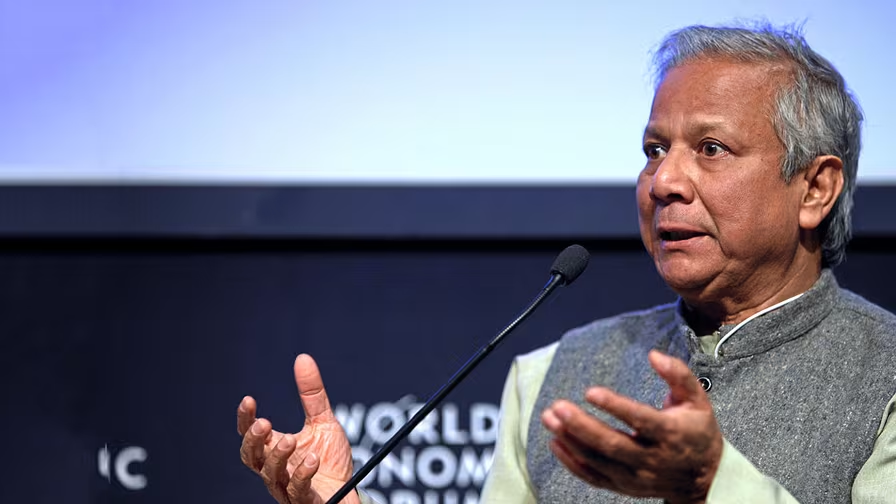
Think at London Business School
What will happen to the economy?
Some say the pandemic will cause not just a recession but a ‘great cessation’. What can we know for sure about the legacy of Covid-19?
By Andrew Scott and Stefan Stern
Find out morePlease enter a keyword and click the arrow to search the site
Or explore one of the areas below

Could quantity of tests rather than quality prove to be the elusive answer to limiting the transmission of COVID-19 and offering the only safe route out of lockdown?
The global nature of the pandemic heightens the challenge of getting the number of tests that are needed to all the people who require them. But there has been a well-publicised lack of accurate tests worldwide. The UK Government has promised that by June a “world-beating” track-and-trace” system will be in place to contain the spread of COVID-19 as the lockdown lifts further.
But without an effective testing strategy, this is not likely to be possible.
Currently, the ‘gold-standard’ COVID-19 test is the RT-PCR (reverse transcription - polymerase chain reaction) test, in which a swab taken from the nose is sent to a lab to be processed. This is a highly sensitive test and is unlikely to provide a false negative, but it is also extremely expensive to process. In addition, they take too long to process.
Meanwhile, the much cheaper ‘point-of-care’ tests are faster, but less accurate. These typically test for antibodies that the body is generating in response to coronavirus infection. Health systems have had issues because they have bought a huge quantity of these tests but have had to put them on hold because they are not accurate enough, providing false negative results as often as 30% of the time.
But what if these cheaper tests, already being developed in huge quantities by independent laboratories, were used in combination to increase the odds of detecting the virus? In other words, what if - rather than developing and scaling a single test that effectively tests for COVID-19 - multiple, independent tests could be just as effective when used in combination on the same person?
'The combination of these independent tests could provide the accuracy levels of a gold-standard'
Research that I conducted with colleagues, surgeon Lord Ara Darzi at Imperial College London and economist Dr Sanjay Jain at Oxford provides an opportunity for public health officials to make use of tests that don’t meet the necessary accuracy threshold by administering multiple, independently manufactured tests, with independent results, to each individual, reducing the chances of an erroneous result.
Published in Nature Medicine in May, our research highlights that:
There are already rapidly developed tests for antibodies that are not particularly accurate being made all over the world. These tests are being developed independently, often using different processes or targeting detection of different proteins. Therefore, you could in theory give a patient multiple tests and if the tests are independent, the chances of getting an incorrect outcome can be multiplied, which means the chance of a false negative falls dramatically.
The combination of these independent tests could provide the accuracy levels of a gold-standard test.
‘Amazon could even collect data on the test results through its platform’
Many tests are being developed in privately-run labs by independent firms. In the short-term, the goal should be for them to develop multiple, independent tests, that can then be mixed and matched to create a gold-standard approach. If a test is imprecise, it could give different results when administered twice in quick succession to a patient. In this case, repeating the same test twice can also improve accuracy.
A quite different smart testing tactic is to pool individual samples. With this approach, 20 blood samples can be taken from different people and a pooled sample is created. If the combined sample is negative, and it is a good test, then everyone is clear. If it returns a positive result, then the group is split repeatedly, using standard optimisation methods, until you find the persons who are positive. This process is already being trialled in hospitals in Germany.
Very helpfully, there is already a global database of test results being collected by FIND (Foundation for Innovative New Diagnostics) in Geneva. This database includes details of the target antibodies and detection process used by each test. By including each test’s accuracy, precision, and the cost of the testing kit, it could be used as a starting point to generate suggestions about which regime could be more effective for different countries.
If Amazon were to sell the tests, it could suggest the purchaser buy a combination of tests as a package to improve test efficacy. Amazon could even collect data on the test results through its platform. This information could then be shared with public health authorities to identify which individuals have been tested, and retested, and have found themselves to be positive.
If this was proved to be effective and successfully rolled out in the UK, we could use this method to contain the virus, providing a safe route out of lockdown and getting our withered economy back on track as quickly as possible. In addition, it could be a game-changer for developing countries which do not have the resources to fund or pay for the highly accurate tests.
Where countries have a severe constraint of a lack of time and a lack of resources, buying multiple, cheaper tests and combining them to increase accuracy, could be the answer to reduce transmissions and offer a more certain route into a post-pandemic future.
Similarly, a pooled approach could help health authorities in developing countries test large numbers of individuals and identify where the positive tests are located without using as many resources as when testing everyone separately.
Kamalini Ramdas is Professor of Management Science and Operations and Deloitte Chair in Innovation and Entrepreneurship at London Business School.
Rajesh Chandy is Academic Director of the Wheeler Institute for Business and Development. He holds the Tony and Maureen Wheeler Chair in Entrepreneurship and is a Professor and Area Chair in the Marketing Subject Area at London Business School. He also serves as Academic Director of the Market Driving Strategies Executive Education programme at London Business School. COVID-19 poses specific challenges for developing countries.
The Wheeler Institute is committed to surfacing expert insights into what those are, and the opportunities to overcome them. Get our latest thinking here.

Think at London Business School
Some say the pandemic will cause not just a recession but a ‘great cessation’. What can we know for sure about the legacy of Covid-19?
By Andrew Scott and Stefan Stern
Find out more
Think at London Business School
How can marketers make decisions in such crazy times? Start by looking at your customers and their evolving needs
By Stefan Stern and Rajesh Chandy
Find out more
Think at London Business School
Nobel Prize-winning economist Muhammad Yunus tells Professor Kamalini Ramdas that Covid-19 could be a catalyst for saving the world
By London Business School
Find out more
Drawing on our extended community we will understand, illuminate and offer solutions to the challenges created by COVID-19. Our differentiating factor is the role of business in addressing these challenges, with a focus on the implications and actions for those in developing countries
READ MORE
Think at London Business School
Some say the pandemic will cause not just a recession but a ‘great cessation’. What can we know for sure about the legacy of Covid-19?
By Andrew Scott and Stefan Stern
Find out more
Think at London Business School
How can marketers make decisions in such crazy times? Start by looking at your customers and their evolving needs
By Stefan Stern and Rajesh Chandy
Find out more
Think at London Business School
Nobel Prize-winning economist Muhammad Yunus tells Professor Kamalini Ramdas that Covid-19 could be a catalyst for saving the world
By London Business School
Find out more
Drawing on our extended community we will understand, illuminate and offer solutions to the challenges created by COVID-19. Our differentiating factor is the role of business in addressing these challenges, with a focus on the implications and actions for those in developing countries
READ MORE